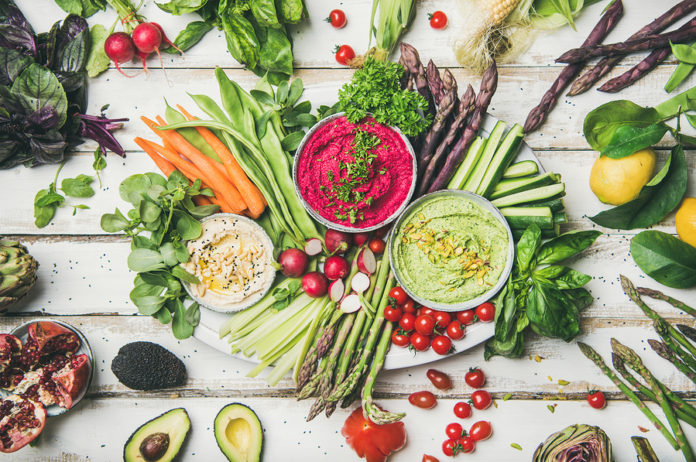
You’ll be hard-pressed to find a trendier food retailer than Whole Foods, so it’s always exciting to explore the trends they expect to shake up the food industry. Here’s what Whole Foods’ experts predict will take the food industry by storm in 2019.
Expanding global palate
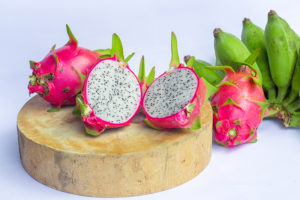
Traveling the world isn’t an option for everyone, but sampling flavors from around the globe is becoming much easier. Whole Foods expects that next year, foodservice professionals and food producers will continue to expand their menu items and product offerings to make room for Pacific Rim-inspired fare. Ingredients will range from entree staples like dried shrimp and cuttlefish to unbelievably sweet fruits including dragon fruit and passionfruit.
Probiotics
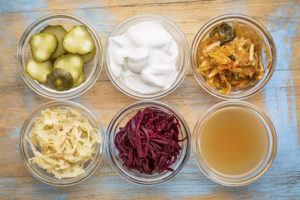
Foods containing naturally-occurring probiotics have been highly sought-after for the past couple of years and are expected to rise in popularity. But this go-around, these gut-friendly foods won’t be limited to the refrigerated section. New shelf-stable strains of probiotics are making it possible for pantry essentials like granola, oatmeal, nut butters, and soups to give you a wellness boost, too.
Fats
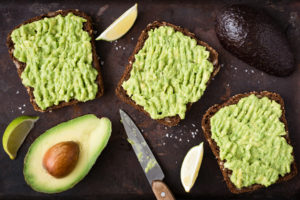
Here’s some good news for avocado toast lovers everywhere: fat has officially shed its “taboo” label. After gaining a bad reputation via the low-fat fad diets of the late ‘80s and early ‘90s, it’s about time the macronutrient made a full recovery. Interestingly enough, fat’s back “in” largely due to today’s popular diets including keto and paleo. In any case, Whole Foods predicts that convenient snacks like nutrition bars and crispy beef jerky will be the go-to vessel to get your daily requirement of fats.
Hemp
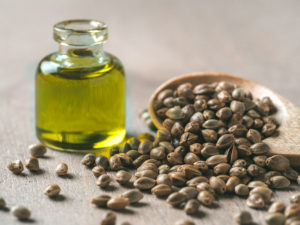
There’s no skating around it the fact that cannabis is poised to rock the food industry. According to the Whole Foods report, “retailers, culinary experts, and consumers can’t miss the cannabis craze when visiting food industry trade shows, food innovators conferences, or even local farmers markets.” Since CBD oil and other cannabis-derived ingredients are still technically off-limits to the food industry, hemp is set to make its mark next year, propelling the food trend from fringe to mainstream.
Plant-based snacks
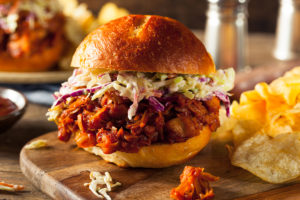
Plant-based diets are booming in popularity so much so that even omnivores are exploring the trend. However, following a vegan, vegetarian, flexitarian, or any other diet that includes plant-based foods doesn’t have to mean giving up meaty flavors and textures. The interest in this way of eating has driven innovation to marry familiar flavors and plant-based ingredients, especially in the snack space. As a result, experts predict that products like meatless jerky, pork rinds, and bacon will start sharing grocery store shelves with their traditional, animal-based counterparts.
Sustainable packaging
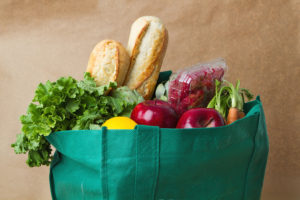
Consumers are becoming increasingly concerned with sustainability. To meet customer demand, multi-use and compostable packaging is popping up in grocery stores. The report says we can also expect reusable beeswax food wraps and silicone packages to step in as plastic alternatives. Further, Whole Foods predicts that some retailers will start urging shoppers to bring their own produce bag.
Frozen treats

It appears the ice cream aisle is getting a makeover. Classic treats like vanilla ice cream will always have their spot in the freezer (and our hearts), but there are new, innovative products demanding some of the limelight. Ice cream alternatives with hummus, tahini, and avocado bases are hitting grocery stores. Along with plant-based frozen snacks will come other high-protein, low-cal treats and unique ethnic inspired desserts like mochi, snow ice, and Turkish ice cream.
Ocean-derived ingredients
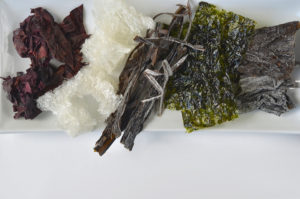
Some of 2019’s hottest ingredients will be sourced from the ocean — and we won’t be limited to just seaweed. Instead, think algae, kelp, and water lily seeds. Much to every plant-lovers’ delight, we’ll start seeing sea greens as the main ingredient in healthy snacks and plant-based seafood alternatives. Omnivores aren’t about to be left out, either. Salmon skin was called out in the report as a crispy snack with a healthy omega-3 kick.
Fancy snacks

Snacks are not all created equal. And this coming year, the food industry will be kicking it up a notch in the quality category. Portable snacks will get the full artisanal treatment to include high-quality cheeses and meats. More restaurants will make space on the menu for charcuterie and cheese boards. Childhood indulgences inspire these classier versions of consumers’ favorite things — but the well-needed ingredients boost and accommodations for special diets is a welcome upgrade.
Purchases with a cause

Consumers make some purchase decisions based on corporate responsibility, but it’s not that fact alone that brought this trend to the list. In our current social and economic climate, shoppers are moving beyond just considering environmental impacts and animal welfare to become more people-focused. As such, we can expect to see food companies more involved with — and boisterous about — social movements.





